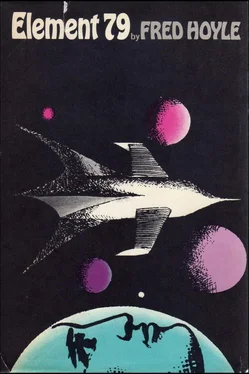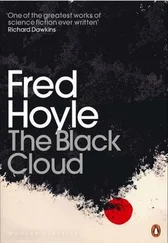The British were smart enough not to put very much gold onto the market. Just enough was released to balance the chronically adverse trade balance. So the price was kept stable through restriction, as the price of diamonds had been kept stable for a generation or more. The Chancellor on Budget Day was now able to hold up his battered old box [1] “Battered old box” refers to the leather-and-pine box used by most Chancellors of the Exchequer from 1860 until 2010 during the announcement of the government's budget plan. By the 1960s it had a famously well-worn appearance.
with a real smile, not the ghastly gray smirk of former years.
Yet the government was not without conscience. The story of the buried “talent” in the Bible came repeatedly to their collective mind. It was felt that the enormous golden windfall should somehow be put to progressive use. Modernization, automation, this was the obvious direction in which Britain should go. Plainly, the gold should be used to finance such a development. Snag, the trade unions, the lotus-eaters.
Automation, it had to be admitted, would put a lot of people out of work. But wasn’t this just what the unions themselves had really been seeking, these many years past, to have their members working as little as possible? What the unions obviously wanted for their members was to be out of work but not out of a job. The solution to this apparent paradox came in a brilliant flash to an administrative genius in the Civil Service. Unions should be paid for not working. Whenever automation made work unnecessary, payment would be made to the appropriate union, exactly as if its members were still doing the work. So it came about that the concept of “automation money” became of decisive importance in the evolution of British society.
“Automation money” was thought of as a perk in the beginning. Soon it became a right. Everybody wanted it. An insistent clamor arose for more and more automation. Unions became overwhelmingly powerful. Since automation money was paid through unions to members, there was no hope at all for you unless you had a ticket. Without a ticket you had to work, just the opposite from the way it used to be. Union membership soon increased to the point where union-sponsored parliamentary candidates were always elected, and where it was really mere hairsplitting to attempt to distinguish between the unions and the government.
The system works smoothly, the economy purrs along. Britain has become the most automatized nation on Earth. New technology is now bought from poorer nations, nations like the United States, where the unfortunate people are still obliged to work. Nowadays, the British take things easily, in well-bred style. Nothing reflects the national temperament quite so much as cricket. No game of cricket ever finishes nowadays. Gone utterly are the ferocious drives and swings of former years, gone are the chops and hooks. Perhaps twice in an hour a batsman will permit himself a gentle tickle to fine leg. The huge crowd wakens up for a brief moment to give a round of restrained applause, for here at last is the nirvana foreseen so percipiently by the philosophers of the East.
The Judgment of Aphrodite
Hermes gave the contenders a quick, experienced glance. A weird lot, a distinctly unpleasant lot, was his instant analysis. He was damned glad he wasn’t going to find himself frolicking with any of ’em. He doubted whether Aphrodite quite realized just what it was she was letting herself in for this time.
On the far left was a fellow in a yellow cape, a king of some sort. Every fifteen seconds or so he spat a stream of bright red liquid into a huge spittoon. He squirted it out, blood, presumably, from the side of his mouth in what he evidently thought to be a stylish fashion. Thus relieved, he looked around the room with a satisfied smirk. Then he would chew for a few seconds and out would come the next jet.
The one at left-center needed close watching. For a moment it would be a handsome young man, not much different from Hermes himself. Then, in a flash, it would be a long, drawn-out old man banging away at the floor with a heavy cloven hoof. Another flash, and it would be a toothless hag in a battered hat who sat there leering up into the face of the blood-spitting king. A trick cyclist, if Hermes ever saw one.
At right-center sat a patriarch with a huge white beard, fully a yard wide. He sat motionless and quite without expression.
At extreme right, equally motionless and equally expressionless, was a thing. Essentially all body, broad with a thick chest, it had a face of a sort, the features apparently of gilt. Hermes had the fancy the features consisted merely of gilt lettering, but this seemed absurd.
Aphrodite floated in to the sound of exquisitely delicate music. Simply but superbly dressed, she took her accustomed chair on the raised dais. Hermes caught a glimpse of the fabulous legs and sighed.
The king in the yellow cape was the first one up. “I am Tamerlenk, conqueror of nations, conqueror of mankind.” A veritable torrent of blood swished into the spittoon.
“I see a beautiful country before me, a land golden with ripening corn.” The fellow threw out his cloak, as if to suggest yellowing fields. Then he pointed straight ahead. “I will have that country. I will have every last thing in it, every woman, every man, every child. With subtle potions I instruct my soldiery to intense greed and cruelty. I inflame them to intense lust. I drive them like the whirlwind into the land of the ripening corn. Women are raped before the eyes of lovers and husbands, men are flogged until not a piece of flesh will cling to the bare bones. Terror reigns supreme, terror untempered by pity. Then I hold up my hand—so!—and peace descends instantly on the land. All is now silent and still, and with silence comes abject obedience from every man, every woman, every child. The land is now mine , every last thing in it.
“This is no vainglorious boasting. The pages of history stand open to attest to my conquests. I waste no more words. Power lies in strength, not in words, and the true servants of power are the whip, the chain, and the branding iron.”
Tamerlenk gave a last decisive ping into the spittoon and sat himself down, plainly satisfied with his performance. Well he might be, thought Hermes. Aphrodite was making notes in her special little book, the way she always did when she was impressed. This monster had hit Aphrodite’s weakness—the exercise of brute physical force—slap-bang on the nose, just as Ares, the war god, always seemed able to do. Hermes had a sudden suspicion of this Tamerlenk fellow. This might be a trick by Ares himself, a trick to maneuver himself into bed with Aphrodite. Once there, once home again, as it were, it wouldn’t be hard for him to make her forget their last quarrel.
Why must it always be the screwballs who were attractive to women, the plausible rascals and the pathological idiots? Hermes shook his handsome young head, and sighed again.
The trick cyclist was the next one up. In the guise of the old crone in the hat, the creature began in a high falsetto. “I frighten the maidens of the villagery. Sometimes I skim milk, sometimes I labor in the quern, and bootless make the breathless housewife churn. Sometimes I make the drink to bear no barm. Sometimes I mislead night wanderers. Hee-hee! Laugh I at their harm.”
In a flash the old crone was gone, replaced by a skull inside which a brisk fire was burning. The skull itself seemed to be inlaid with turquoise mosaics. Before Hermes could make quite sure of this, a creature with lank, black hair parted down the middle, a creature with a vast mouth—the teeth even and flat at the bottom like a pair of scissors—was standing there. This apparition immediately gave way to an oddity with the horns of a cow, the teeth filed into sharp needles this time. The gyrations went faster and faster until Hermes became quite dizzy. Aphrodite turned on him with a quizzical shrug.
Читать дальше












